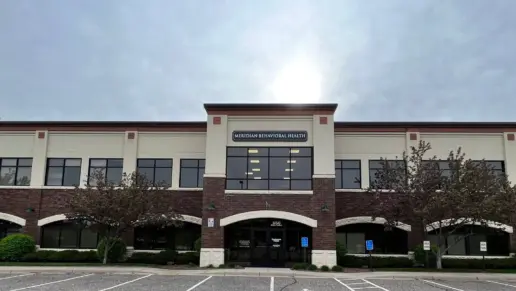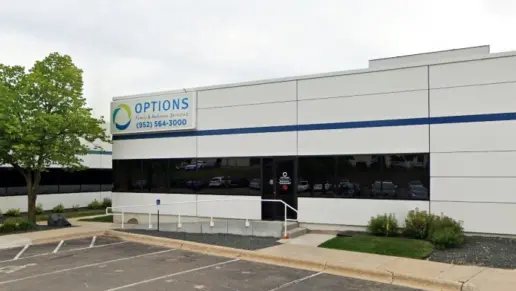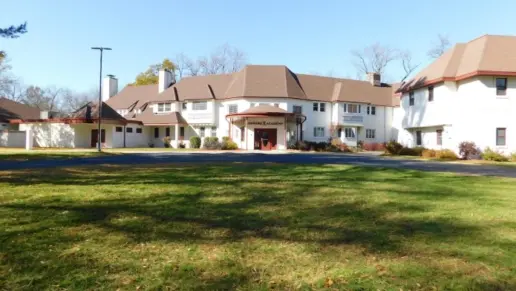My husband struggled with alcoholism for many years. He was in and out of treatment, and kept relapsing. When he talks about his experience at The Retreat, he talks about how they helped him to learn to live his life differently. I am thankful every day for the miracle of ...
About The Retreat
The Retreat is a peer operated rehab in Wayzata, Minnesota. This is a bit different than a traditional rehab because it’s more mutual and collaborative. They take a peer support approach where you and the others in your program help each other strengthen your sobriety. It’s run by a nonprofit called the Community of Recovering People.
The Retreat is best known for its residential treatment program. It has separate programs for men and women. They also have an evening program for people who are living at home and working during the day but still want dedicated treatment. There’s also a special program for seniors over 55 and a family recovery program, too.
This rehab takes a fundamentally different approach than most rehabs. It aims to get away from the clinical feel of many rehabs and instead focus more on building a community and holistic addiction recovery. The program is based on the spiritual principles of Alcoholics Anonymous, and they can get you started on 12 step programs that you can continue after you go home.
This type of nonclinical rehab could be an ideal fit if you want something that feels less medical and more like a mutually supportive environment. It’s that nontraditional and getaway feeling that clients love and credit with being a life changing and sometimes life saving experience.
This rehab can also be a great option if you’re transitioning out of another rehab program. They have several sober living homes that offer a great environment where you can start rejoining society and rebuilding your life in sobriety while still being in a home that is safe for your recovery.
Rehab Score
Gallery
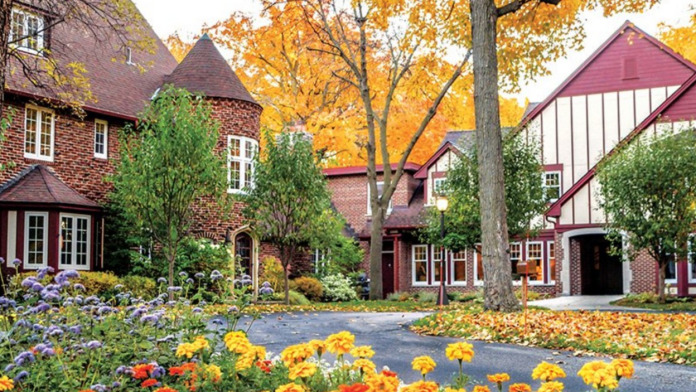
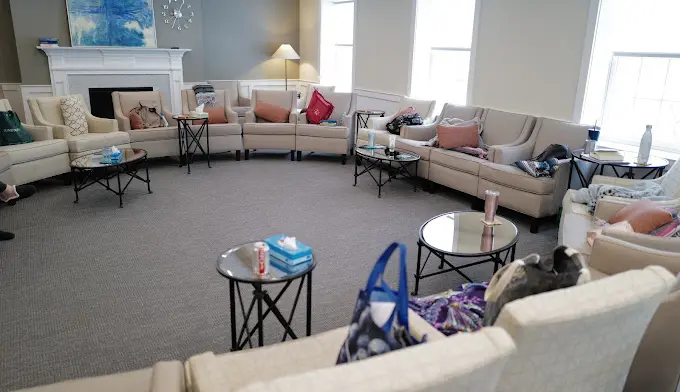
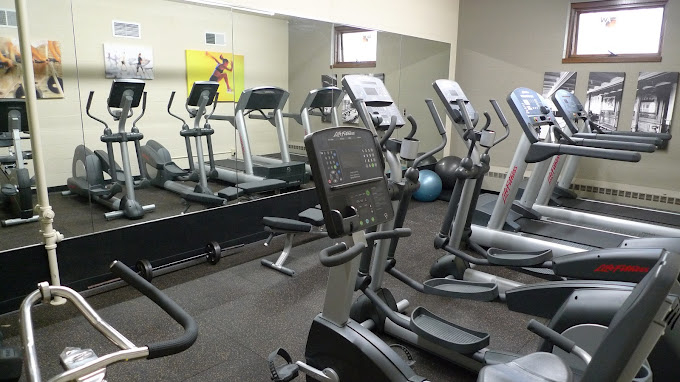
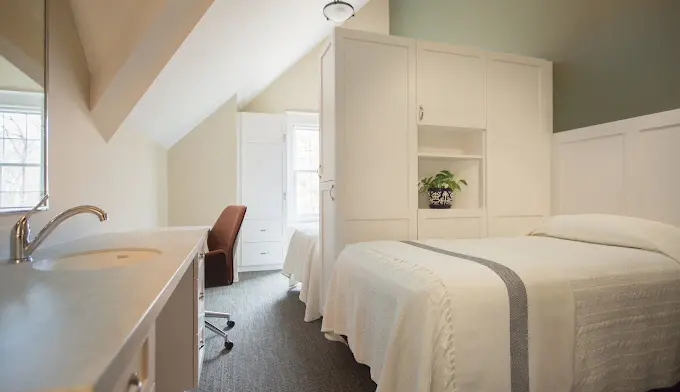
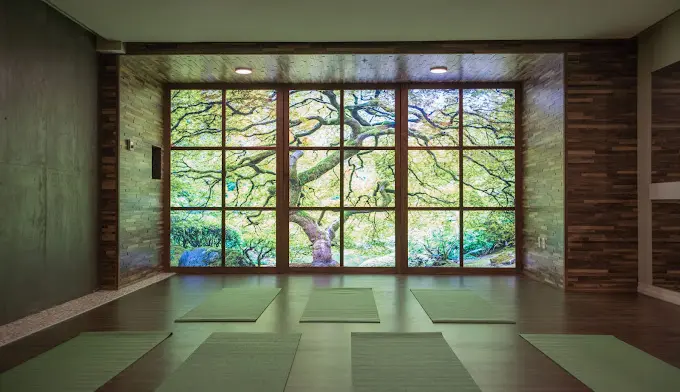
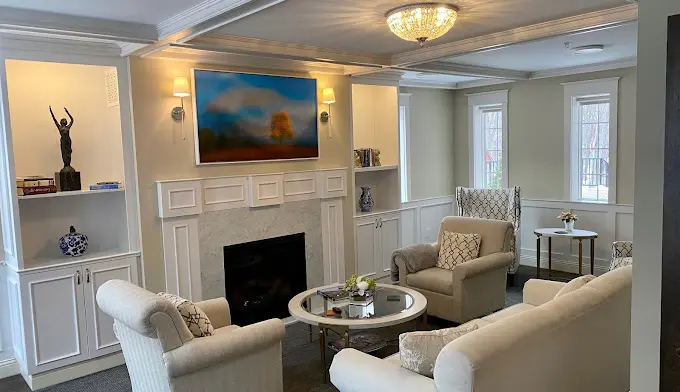
Location
Other Forms of Payment
Self-pay involves paying for treatment out of your own pocket. You can use savings or credit, get a personal loan, or receive help from family and friends to fund your treatment. If you don't have insurance or your insurance plan doesn't cover a specific program, self-pay can help ensure you still get the care you need.
Private insurance refers to any kind of healthcare coverage that isn't from the state or federal government. This includes individual and family plans offered by an employer or purchased from the Insurance Marketplace. Every plan will have different requirements and out of pocket costs so be sure to get the full details before you start treatment.
Medicaid is a state based program that helps lower-income individuals and families pay for healthcare. Medicaid covers addiction treatment so those enrolled can use their coverage to pay for rehab. When a program accepts Medicaid the client often pays very little or nothing out of their own pocket.
Medicare is a federal program that provides health insurance for those 65 and older. It also serves people under 65 with chronic and disabling health challenges. To use Medicare for addiction treatment you need to find a program that accepts Medicare and is in network with your plan. Out of pocket costs and preauthorization requirements vary, so always check with your provider.
Addiction Treatments
Levels of Care
Treatments
The goal of treatment for alcoholism is abstinence. Those with poor social support, poor motivation, or psychiatric disorders tend to relapse within a few years of treatment. For these people, success is measured by longer periods of abstinence, reduced use of alcohol, better health, and improved social functioning. Recovery and Maintenance are usually based on 12 step programs and AA meetings.
Drug addiction is defined as an inability to stop using drugs even though it causes negative consequences in your life. Drug rehab in Minnesota provides treatment for drug addiction in a variety of settings including inpatient treatment and outpatient treatment.
Many of those suffering from addiction also suffer from mental or emotional illnesses like schizophrenia, bipolar disorder, depression, or anxiety disorders. Rehab and other substance abuse facilities treating those with a dual diagnosis or co-occurring disorder administer psychiatric treatment to address the person's mental health issue in addition to drug and alcohol rehabilitation.
A combined mental health and substance abuse rehab has the staff and resources available to handle individuals with both mental health and substance abuse issues. It can be challenging to determine where a specific symptom stems from (a mental health issue or an issue related to substance abuse), so mental health and substance abuse professionals are helpful in detangling symptoms and keeping treatment on track.
Opioid rehabs specialize in supporting those recovering from opioid addiction. They treat those suffering from addiction to illegal opioids like heroin, as well as prescription drugs like oxycodone. These centers typically combine both physical as well as mental and emotional support to help stop addiction. Physical support often includes medical detox and subsequent medical support (including medication), and mental support includes in-depth therapy to address the underlying causes of addiction.
Substance rehabs focus on helping individuals recover from substance abuse, including alcohol and drug addiction (both illegal and prescription drugs). They often include the opportunity to engage in both individual as well as group therapy.
Programs


Clinical Services
Research clearly demonstrates that recovery is far more successful and sustainable when loved ones like family members participate in rehab and substance abuse treatment. Genetic factors may be at play when it comes to drug and alcohol addiction, as well as mental health issues. Family dynamics often play a critical role in addiction triggers, and if properly educated, family members can be a strong source of support when it comes to rehabilitation. The Retreat’s Family program gives families and friends of alcoholics and addicts tools to effectively support their loved one in the face of the confusion and chaos of addiction.
Group therapy is any therapeutic work that happens in a group (not one-on-one). There are a number of different group therapy modalities, including support groups, experiential therapy, psycho-education, and more. Group therapy involves treatment as well as processing interaction between group members.
In individual therapy, a patient meets one-on-one with a trained psychologist or counselor. Therapy is a pivotal part of effective substance abuse treatment, as it often covers root causes of addiction, including challenges faced by the patient in their social, family, and work/school life.
Life skills trainings involve all the skills a person must have in order to function successfully in the world. These include time management, career guidance, money management, and effective communication. Truly successful addiction recovery is based on the ability to not only live substance-free, but to thrive. Life skills teaches the practical necessities of functioning in society, which sets clients up for success in life, and therefore sobriety.
Amenities
-
Private Setting
-
Walking Trails
Staff & Accreditations
Staff
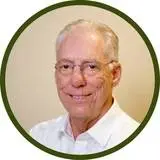
Co-Founder,CEO & President

Director of Development

Director of Human Resources & Business Development
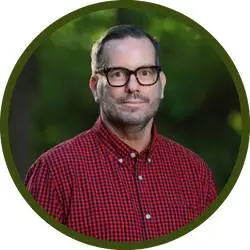
Director of Admissions and Marketing
Accreditations

LegitScript has reviewed The Retreat as part of their certification program, and has determined that it meets the LegitScript standards for legality, safety and transparency.
LegitScript verified in November 2019

The National Association of Addiction Treatment Providers (NAATP) is a professional association that represents organizations in the field of addiction services. Founded in 1978, NAATP's mission is to advance addiction services and ensure that high-quality addiction treatment is available and accessible.
NAATP Member: Yes
Member ID: 584
Contact Information
1221 Wayzata Blvd E
Wayzata, MN 55391
